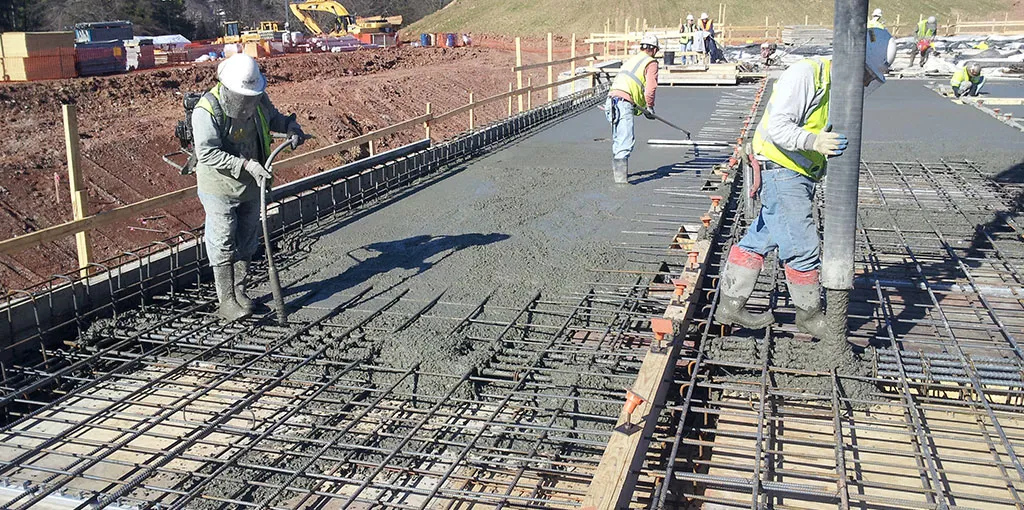Construction projects in the UK require a Construction Phase Plan (CPP) to safely manage work on site.
This CPP is a must for all contractors under the Construction (Design & Management) Regulations 2015, regardless of project size or duration.
When Is a Construction Phase Plan Required?
A Construction Phase Plan (CPP) is required for all construction projects in the UK, no matter the size, under the Construction (Design and Management) Regulations 2015.
The CPP is an essential document that must be prepared before any construction work begins on site.
It allows for the proper planning and management of health and safety risks during the construction phase of a project.
Given these points, the client is responsible for ensuring a CPP is in place before work starts.
Key Points
- CPPs are required for all UK construction projects under CDM 2015
- The CPP must be prepared before construction work starts on-site
- The CPP allows for planning and managing construction health and safety risks
Our Opinion
The Construction Phase Plan is a crucial document for the safe and efficient delivery of any building project.
We believe that no construction work should ever commence without a comprehensive CPP in place.
This plan allows all parties to understand the risks and how they will be controlled. In our experience, projects with a robust CPP are far less likely to suffer accidents or incidents.
Henceforth, we would advise all clients and contractors to engage with their duties under CDM 2015 and always have a suitable CPP prepared before starting work.
Overall, this simple step can prevent injuries and save lives on construction sites.
When Is a Construction Phase Plan Required?
A CPP is needed on all UK construction sites before work begins. The client must ensure a CPP is in place, whether you are the only contractor or the principal contractor. The plan should be proportional to the project’s size and duration.
The CPP addresses health and safety risks during the construction phase. It is an essential document for planning and managing work. Hence, with an up-to-date CPP, you can coordinate contractors and tradespeople on-site. It also helps you monitor changing site conditions.
Key elements in a CPP include:
- Site rules and induction procedures for new workers
- Arrangements for site welfare facilities
- Fire and emergency procedures
- Site traffic routes and delivery areas
- Waste and material storage
The CPP evolves as the project progresses. Review and update it regularly to reflect new phases of work. This keeps your site running safely and efficiently.
In summary, a construction phase plan is a must for all UK projects before work starts on site. It coordinates health and safety measures across contractors and changing site conditions. Thus, with an up-to-date CPP, you can effectively manage construction from start to finish.
Construction Projects Needing a Construction Phase Plan
Many construction projects require a CPP, regardless of size or duration. This includes:
- New builds and extensions
- Refurbishments and retrofits
- Demolition and dismantling
- Civil engineering projects
- Temporary works like scaffolding
Even small jobs like installing new windows or re-roofing require a CPP. The plan provides structure and coordination for safe working. It applies to both commercial and residential projects.
Certain types of work have greater risks and complexities. More detailed CPPs are recommended for:
- Projects involving multiple contractors
- Hazardous materials like asbestos
- Work on occupied sites
- Projects near waterways or underground services
The CPP scales to match the project. A large new building may need extensive details, procedures and drawings. Minor works can also use a simplified CPP. The key is assessing risks and planning appropriately.
In essence, all construction work in the UK needs a CPP. It provides oversight and control during the build process. Thereupon, with clear coordination through your CPP, projects proceed safely and efficiently from start to finish.
Appointing a Principal Contractor
For projects requiring a CPP, a principal contractor must be appointed to manage its delivery. This is a key duty-holder role under CDM regulations.
The principal contractor is responsible for:
- Preparing the CPP and submitting it to the client
- Managing and monitoring the CPP throughout the project
- Coordinating contractors and updating the CPP as needed
- Ensuring suitable welfare facilities are provided
They act as the main point of control during the construction phase. Principal contractors are appointed early, often in the pre-construction phase.
For large projects, the principal contractor may be a construction management firm. They oversee the CPP without doing physical work on-site.
On smaller projects, the main or lead contractor can take the principal contractor role. They manage subcontractors and directly deliver part of the work.
In all cases, the principal contractor must have the skills, knowledge and experience to produce the CPP and deliver it effectively. They should collaborate closely with the client and designer throughout.
Explicitly, appointing a capable principal contractor is essential for CPP success. They drive safe, compliant construction from start to finish.
What Must a Construction Phase Plan Contain?
The construction phase plan is a live document that evolves as the project progresses. It must contain certain information to comply with CDM regulations.
Key CPP contents include:
- Health and safety arrangements for the project
- Site rules and induction procedures
- Key dates, personnel contacts and responsibilities
- Control measures for site risks and hazards
However, the CPP covers the construction phase only. It does not address the pre-construction design and planning stages. The principal designer produces a pre-construction information pack for these early stages.
The CPP and pre-construction info pack complement each other. They help ensure safe design principles are carried through into construction.
The principal contractor must review the pre-construction information when planning the CPP. This helps identify risks early and includes appropriate control measures.
Overall, the CPP is a key document for managing construction phase risks. Its contents help drive safe working and legal compliance on site.
Penalties for Not Having a Construction Phase Plan
Failing to produce a suitable CPP when required carries severe penalties. Construction projects without a CPP can be issued with prohibition or improvement notices by the HSE.
Prohibition notices stop activity on site until health and safety is improved. Improvement notices set deadlines for fixing specific issues. Failure to comply can lead to unlimited fines or even imprisonment.
In addition to these enforcement notices, other penalties exist for not having a CPP:
- The client can sue the principal contractor for breach of duties
- The principal designer can claim against the principal contractor for negligence
- Insurers may void policies if conditions are breached
If an incident occurs, the absence of a CPP indicates negligence under criminal law. Manslaughter charges could follow in serious cases.
Nevertheless, even without incidents, breaching CDM regulations is a criminal offence. Conviction can attract fines of up to £20,000 for individuals and £400,000 for organisations.
Reputational damage is also likely if duty holders are prosecuted. Clients may lose trust and take future work elsewhere.
Overall, failure to produce a suitable CPP has major legal, financial and reputational risks. Duty holders must understand their responsibilities to avoid penalties.
FAQ
What projects require a construction phase plan?
All construction projects in the UK, regardless of size, require a Construction Phase Plan (CPP) under the Construction (Design & Management) Regulations 2015.
When should a construction phase plan be prepared?
The CPP should be prepared before construction work starts so that the risks of the work can be properly planned and managed.
Are construction phase plans required on non-notifiable projects?
Yes, CPPs are required on all construction projects, even those that are non-notifiable to the HSE.
Who should a construction phase plan be issued to?
The CPP should be issued to all contractors working on the project, so they are aware of the health and safety risks and control measures. The principal contractor is responsible for preparing the CPP.
Conclusion
All construction projects in the UK, regardless of size, require a Construction Phase Plan under CDM 2015 regulations. This is a key document for planning and managing health and safety risks during the construction phase. The CPP should be prepared before work starts and issued to all on-site contractors. When a construction phase plan is required depends on the project, but it is always necessary before construction begins.


